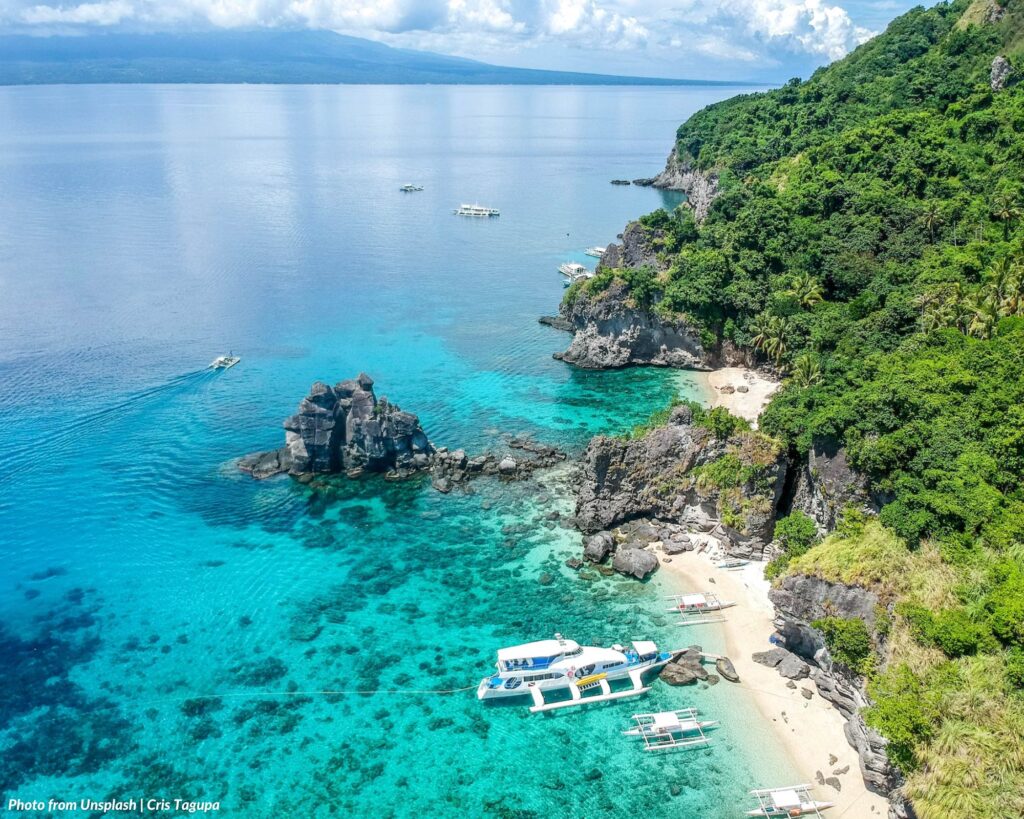
Photo from Unsplash | Cris Tagupa
The following post does not create a lawyer-client relationship between Alburo Alburo and Associates Law Offices (or any of its lawyers) and the reader. It is still best for you to engage the services of a lawyer or you may directly contact and consult Alburo Alburo and Associates Law Offices to address your specific legal concerns, if there is any.
Also, the matters contained in the following were written in accordance with the law, rules, and jurisprudence prevailing at the time of writing and posting, and do not include any future developments on the subject matter under discussion.
AT A GLANCE:
National Tourism Week is celebrated on the last week of September of every year, as per Proclamation No. 894, series of 1996.
Tourism enterprises refer to facilities, services and attractions involved in tourism. (Section 4, R.A. No. 9593)
It is the policy of the Philippines to promote, encourage and develop tourism as a major national socio-economic activity.
In observance of the World Tourism Day celebrated every 27th day of September, as declared by the World Tourism Organizations, and with the intention of instilling national consciousness on tourism as an instrument of progress towards an accelerated national development, unity and identity as a nation, Proclamation No. 894, series of 1996, was issued.
The Proclamation provides:
“WHEREAS, the observance of tourism day as a worldwide activity is celebrated on the 27th day of September of every year as declared by the World Tourism Organization and Proclamation No. 1942 dated February 1, 1980;
WHEREAS, in order to coincide with the above declaration of the World Tourism Organization and Proclamation No. 1942, and to instill national consciousness on tourism as an instrument of progress towards an accelerated national development, unity and identity as a nation, it is proper and fitting that the observance of National Tourism Week be moved from the first week of May of every year pursuant to Proclamation No. 549 dated April 6, 1990, to the last week of September of every year;
NOW, THEREFORE, I, FIDEL V. RAMOS, President of the Republic of the Philippines, by virtue of the powers vested in me by law, do hereby declare the last week of the month of September of every year as National Tourism Week. I call upon the citizens of the Philippines to observe the said period with appropriate activities designed and initiated by the Department of Tourism to promote the objectives and goals of this proclamation.” (Proclamation No. 894, s. 1996)
The Tourism Act of 2009 (Republic Act No. 9593) declares tourism as an indispensable element of the national economy and an industry of national interest and importance, which must be harnessed as an engine of socioeconomic growth and cultural affirmation to generate investment, foreign exchange and employment, and to continue to mold an enhanced sense of national pride for all Filipinos. (Section 2, Republic Act No. 9593 or the Tourism Act of 2009)
Tourism enterprises
Tourism enterprises refer to facilities, services and attractions involved in tourism.
The law says:
“Tourism enterprises refer to facilities, services and attractions involved in tourism, such as, but not limited to: travel and tour services; tourist transport services, whether for land, sea or air transportation; tour guides; adventure sports services involving such sports as mountaineering, spelunking, scuba diving and other sports activities of significant tourism potential; convention organizers; accommodation establishments, including, but not limited to, hotels, resorts, apartelles, tourist inns, motels, pension houses and home stay operators: tourism estate management services, restaurants, shops and department stores, sports and recreational centers, spas, museums and galleries, theme parks, convention centers and zoos.” (Section 4, R.A. No. 9593)
Republic Act No. 11494 or the Bayanihan to Recover As One Act was enacted in 2020 as a response to recovery from the effects of the coronavirus pandemic. The law recognized the “severe disruption to livelihood and all other productive activities which were reflected in the country’s economic contraction”.
The law directed the Department of Tourism (DOT) to prioritize and render assistance to critically impacted tourism enterprises, including tourism-oriented barangay micro business enterprises, cooperatives engaged in tourism-related activities or other members of the informal sector in tourism. To effectively do this, the law mandated the DOT to create the necessary programs such as the following:
(1) Provide loan interest rate subsidy;
(2) Tourism Road Infrastructure Program of the Department of Public Works and Highways (DPWH);
(3) Cash-for-work programs and the unemployment and involuntary assistance for the displaced workers or employees in the tourism sector;
(4) Marketing and product development, promotions and programs, including travel advertising and festival-support strategies;
(5) Grants for education, training, and advising of tourism stakeholder for the new normal alternative livelihood programs;
(6) Utilization of information technology for the improvement of tourism services, development of a tourist tracking system for emergency response, and establishment of spatial database to improve planning capacity;
(7) In partnership with the LGU and DOH and/or private entities, establish COVID-19 testing centers in tourist destinations as identified by the DOT, to stimulate tourism and generate employment; and
(8) Any other relevant programs, including infrastructure, product-sourcing, and subsidized domestic package tours necessary to mitigate the economic effects of COVID-19 on the tourism industry. (Section 4, par. hh, R.A. No. 11494)
The Bayanihan to Recover As One Act likewise provided, among others, that loan intervention programs by the DOT shall be exclusively for tourism enterprises including small-scale tourism-oriented enterprises that are accredited by local government units (LGUs) under Republic Act No. 9178 or the Barangay Micro Business Enterprises Act of 2002.
Read also: Incentives for Tourism Enterprise Zone Operators and Registered Tourism Enterprises
Alburo Alburo and Associates Law Offices specializes in business law and labor law consulting. For inquiries regarding taxation and taxpayer’s remedies, you may reach us at info@alburolaw.com, or dial us at (02)7745-4391/0917-5772207.
All rights reserved.


